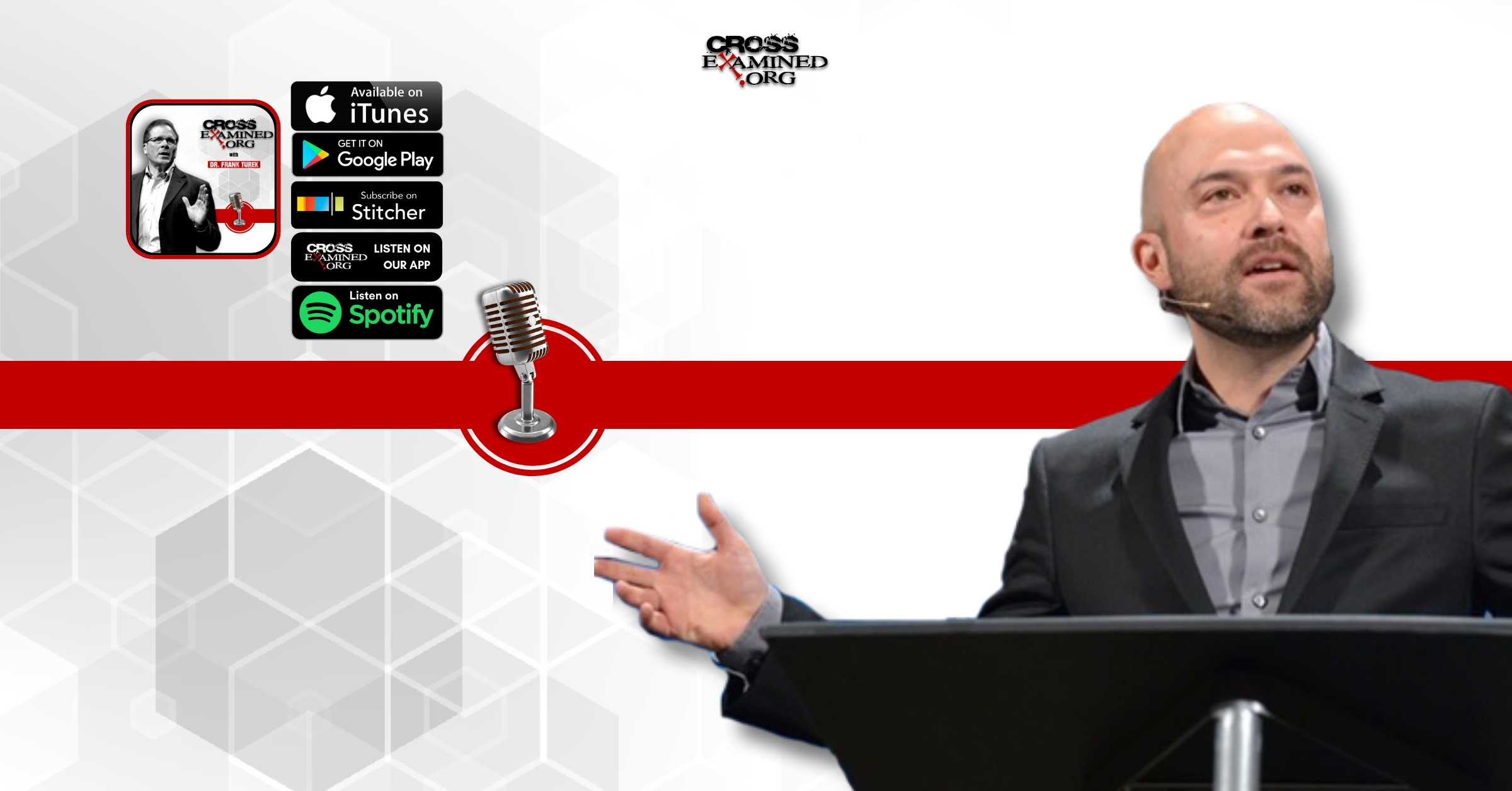[Although this essay was written at another time, Cross Examined considers its content to be current and relevant to share]
Few years ago, Current Biology, a research journal published by Cell Press, carried an article titled, “The Negative Association between Religiousness and Children’s Altruism across the World.” The report, authored by seven psychologists from four continents, related the findings of experiments with approximately 1,200 children ages 5-12 from six nations. The study was funded by a grant from the John Templeton Foundation, Science of Philanthropy Initiative.
The article highlighted three findings: (1) that children from religious households are less altruistic than children from secular households, (2) that they are more harsh and punitive than children from secular households, and (3) that their parents don’t see them as less altruistic and more punitive but rather as kinder than other children in terms of empathy and sensitivity to injustice. “Together these results reveal the similarity across countries in how religion negatively influences children’s altruism, challenging the view that religiosity facilitates prosocial behavior,” the summary concluded. In other words, if you’ll pardon the snark, kids exposed to religion are anti-social, and their parents are clueless. Religion is a social pathogen.
As you can imagine, this was a windfall for the secular press. “Religious upbringing linked to less altruism,” announced Science Daily. “Children from nonreligious homes are more generous, altruistic than observant ones,” trumpeted Newsday. And the UK Guardian‘s header bordered on the childish: “Religious children are meaner than their secular counterparts.” Science Codex at least showed enough restraint to headline its report in the form of a question, “Does religion make kids less generous?”
Well, does it? Science said it. Does that settle it?
Of course, it doesn’t. As apologist Frank Turek says, science doesn’t say anything. Scientists do. And because scientists, science writers, and mainstream journalists are all fallible human beings, a level-headed response calls for some critical thinking every time a new finding is being heralded in the name of science.
Experts, Shmexperts
Critical thinking begins with examining exactly what is being said and by what authority. Let’s start with the question of authority. In Shmexperts: How Ideology and Power Politics Are Disguised as Science, Marc Fitch addresses what he calls “the modern myth of experts.” He begins by defining “experts” for his specific purpose. (Personally, I like “shmexperts” better, but I will go with his terminology for now.) First, an expert is not the working professional informed by relevant experience and skill—the man or woman “whose motivation in their work is to produce a result: an actual, testable piece of hardware or a theory that can be proven empirically.” A professional whose product is subject to external standards in this way is not what Fitch is talking about. Second, he’s not necessarily referring to intellectuals—those who make their living in the realm of ideas, although the lines between intellectuals and experts are apt to get blurred.
Experts, for Fitch’s treatment, are primarily defined by their transgression of the boundaries inherent to their fields of expertise. For example, a cell biologist may have a perfectly good, morally sound opinion on the social advisability of religion-based models of childrearing. Or he may be a cold-blooded moral monster. The point is, knowledge in the realm of science does not make him a credible authority in the realm of values. This should not need pointing out, but apparently, it does. Whenever anyone makes statements about non-material realms of thought, or pushes a moral argument, under the banner of science, then the science is not being used in its proper context. It is being coopted to advance an agenda.
When expert “authorities” advance an agenda this way, they are “avoiding an ethical, moral, or political argument,” Fitch points out, and are imbuing “the realm of human ideals with the faulty notion that somehow chemical, biological, or physical sciences can offer an answer to the human condition.” When scientists do this, they are not acting as scientists. They are acting as philosopher kings. The same goes for the gullible (or complicit) media granting them platforms from which to reign.
Critical Examination 101
Now let’s take a look at the Current Biology report on children, religion, and altruism. The first question that ought to come to mind is, What exactly does religion have to do with biology? What has philanthropy to do with biology? Or altruism? Or generosity? Of course, the answer is nothing. Although the study itself was done by psychologists, its publication in a biomedical journal raises a glaring red flag. Realms of thought have been mixed, boundaries blurred.
Now, let’s look at how the experts reached their findings. To assess altruism, they conducted an experiment called the Dictator Game. Children were allowed to choose ten stickers, which they were told: “are yours to keep.” They were also told that not all the children in their group would get stickers because the experimenters didn’t have time for everyone. The children were then given an opportunity to share the stickers they were given, right there on the spot. The experimenters counted the number of stickers each child shared, and that number became the measure of that child’s altruism. So, if a child opted to take his stickers home to share with his little sister or his buddy next door, he did not count as altruistic.
Here’s how they measured moral sensitivity. The children were shown short videos depicting mean actions—one child shoving another, for example. Then their reactions were somehow categorized according to how they judged the mean act they’d been shown. So if the same child exhibited judgment when he saw a boy shove a girl to the ground—if he said, Hey, that’s not fair; that boy should be punished! For example—then he counted as harsh and punitive.
Technically, that may be accurate, but ponder the perverse moral reasoning by which moral sensitivity is being assessed here. Those children exhibiting an indifference to injustice are being appraised as the “nice” ones, the pro-social ones. Meanwhile, those who censured meanness counted as, well, mean.
Should nothing be punished? We might ask. Toward whom should the child have shown sensitivity? Toward the boy doing the shoving? Or toward the girl who was shoved? Wouldn’t a fair-minded observer say the child objecting to meanness is actually more sensitive to injustice than the one who’s indifferent?
To be sure, these are judgment calls. And that is precisely the point. Judgment calls were factory-installed into this study. Either the experts knew it and have not been upfront about it, or they’re blithely clueless regarding their own massive bias.
How they defined “religiousness” is equally overripe for critical deconstruction, but you get the point.
Bad Science
If psychologists want to try to map people’s altruism or generosity or philanthropy in relation to their religiosity—however, they choose to define and quantify such non-exact entities—that’s fine. They can define their terms and presuppositions and have at it. But “The Negative Association between Religiousness and Children’s Altruism across the World” is, at best, bad psychology. And whatever it is, it certainly isn’t biology. It might better be called secular snobbery masquerading as objective science.
Cell Pressbills itself as “a leading publisher of cutting-edge biomedical research and reviews.” How such bunk qualified as biomedical research is a question every self-respecting biologist should be asking every sitting member of Current Biology‘s editorial board. All 103 of them. Anyone with a working baloney-detector can see the egregious transgression of boundaries.
In his book, Fitch touches on several agenda-driven narratives that have been or are (still) being foisted on the public by “experts”: population control; the supposed scientific basis for a host of “victimhood” narratives; the politics of health care; pot legalization; and—the granddaddy of global political agendas—environmentalism. And there are others that he doesn’t take up, but we should: psychiatry, for example, and the deluge of sex and gender “science” flooding the pipeline. To avoid subversion by shmexperts, everything must be put through a critical filter—everything.
Bad Religion
There’s a lot at stake. The ramifications of the modern cult of experts include:
A heightened generalized anxiety. How does one know whom among the “authorities” or what out of the swarming buzz of opinions to believe? The cacophony is enough to tempt anyone to tune it all out because it’s just too hard or too upsetting or too confusing. But tuning out leads to—
A softening of the mind. Widespread outsourcing of thought—and worse, of moral reasoning—renders the public increasingly subject to demagoguery, fear-mongering, and mob mentality. Groupthink sets in like dry rot and totalitarian thought control follows. This creates an environment hostile to sustaining basic political liberties. We already see a soft tyranny suffocating freedom of thought and conscience at the university.
A devaluing of the individual. When awe-inspiring reverence is conferred on those with degrees and titles over the non-academic-but-supremely-practical working Joe, a gap—real or perceived—widens between the intellectual haves and have-nots. This serves no one’s best interest. It breeds narcissism among the elite and a menacing mix of servile dependency and brooding discontent among the rest.
An outsourcing of salvation. The media cite and defer to experts who, for various reasons, sow fears and recommend government interventions. Politicians for their part are happy to promote policies they see as contributing to their immortal legacy. And they will, of course, need the experts to administer the policies, so the ruling class expands. “We rely on a small troupe of Chicken Littles,” Fitch writes, “each telling the world that the sky is falling, the earth is warming, markets are collapsing, diseases are spreading, and people are starving. They present the world of death as a great beast slouching toward your homes [and] they call upon the government to intercede and take further control to alleviate the ‘crisis.'”
It is just assumed that we unthinking, unwashed masses need the anointed elites to save our poor, helpless souls from the big bad world out there. Fitch doesn’t frame it in religious terms, but at some point, the would-be ruling class does assume the role of in loco savior and lord. Except that it can never save. It can only lord.
Sound Minds, Sound Society
Fitch offers some good suggestions for filtering shmexpert fare. Learn to separate empirical data from ethics and morality, and the hard sciences from the inexact, soft humanities. In many cases, bad science doesn’t so much need to be countered as it needs to be exposed to the light of scrutiny and deconstructed, as we have done with the Current Biology mashup on religiousness and altruism.
Most of all, learn to think in broader worldview terms. It is true that the world is not a safe place, and there is a role for government and legitimate experts to play in meeting the challenges people face. And while it is also true that we all stand in need of a savior, no government nor any shmexpert is up to that task.
Terrell Clemmons is a freelance writer and blogger on apologetics and matters of faith.
This article was originally published at salvomag.com: http://bit.ly/33l73Jm










